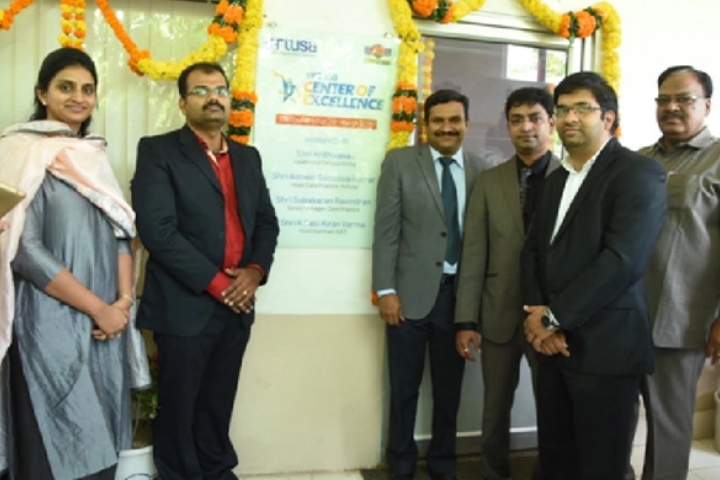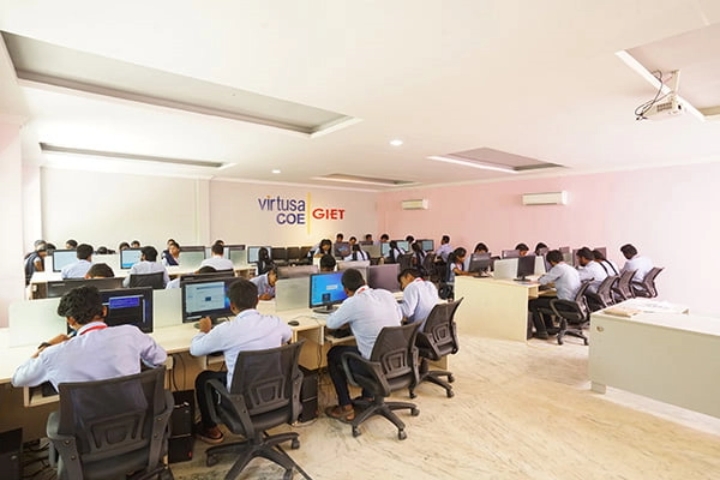Department Profile
Overview
The Automobile Engineering Department at Godavari Global University is dedicated to shaping the future of automotive innovation. We provide students with a comprehensive education that combines theoretical knowledge and practical skills to excel in the dynamic field of automobiles. Our experienced faculty, state-of-the-art facilities, and industry collaborations ensure that our graduates are well-equipped to meet the demands of the rapidly evolving automotive industry.
Genesis

Our Vision
To be recognized as an epitome of Automobile Engineering
Our Mission
- Teaching regular practices and updating new technologies through utilization of software tools and sophisticated teaching aids
- Guest lectures, workshops, seminars and conferences
- Bridging the gap between industry and college through frequent industrial visits
- Carrying out research and development projects
- Developing entrepreneurial skills through internships and case studies

Program Outcomes
After completion of the program, a successful graduate will be able to:
Program Outcomes
- Apply the knowledge in mathematics, science and engineering for practical problem
- Design and conduct experiments, interpret data, analyze it and report results
- Design an Automobile or relevant system that meets the comfort and safety of the user or worker with global standards
- Investigate and unearth the causes of failure of automobile components, industrial accidents, road mishaps
- Use modern engineering tools, equipment and software tools to analyze the problems
- Apply engineering solutions in global and societal context
- Find the causes of environment pollution and solutions for sustainability
- Recognize and practice the professional and ethical values and act accordingly
- Transform the innovative ideas individually as well as with engineering & science laboratory teams and multidisciplinary teams
- Communicate effectively in verbally, graphically and written forms to increase coordination and cooperation in the team and use appropriate tone in communication with workers of different knowledge levels
- Design, plan and execute projects in an orderly manner to meet financial and other constraints
- Understand the impact of modern technology on society by the awareness of contemporary issues and act appropriately throughout life
Program Educational Objectives
Within a few years after the graduation, the graduates will be:
Program Educational Objectives
- Catering to the needs of Indian and multinational Automobile industries
- Competent with up-to-date technological background to synthesize data, formulate and undertake applications of Automotive design with viable solutions
- Working on multidisciplinary projects with competence in professional skills and ethics
- Successful in Higher studies
Program Specific Outcomes
At the end of the programme the specific abilities that will be acquired are
Program Specific Outcomes
- Ability to apply various engineering principles and CAD/CAM software to design, manufacture and analyze automobile systems, subsystems, and components
- Ability to operate, maintain, troubleshoot, and repair various types of automobiles, and to design, analyze, test, and evaluate the performance of electrical machines and transformers
- Ability to establish start-ups in the automobile field to manufacture subsystems or vehicle maintenance
Head of Department

Dr. B. Srinivasa Raja
Head of the Department and Chairman-BoS
Department of ECE has been known for its exceptionally strong Under-Graduate and Graduate training programmes.
Infrastructure
The Department has 3 modern laboratories that serve the learning needs of the students.



Research and Development
Centre of Excellence
AVEVA CENTER OF EXCELLENCE
The Internet of Things (IoT) is a course about the new paradigm of objects interacting with people, with information systems, and with other objects. The course will focus on creative thinking and on hands-on project development.
The Internet of Things (IoT) is a system of interrelated computing devices, mechanical and digital machines, objects, animals or people that are provided with unique identifiers (UIDs) and the ability to transfer data over a network without requiring human-to-human or human-to-computer interaction.


Functionality
- The AVEVA Electrical designer training signifies to perform CAD designing for the AutoCAD drawing of different electrical equipment, sub-station and wiring.
Benefits
- The AVEVA Electrical administrator develops the student as the electrical project administrator with necessary administrative knowledge.
- This module has been developed for electrical engineer user who will be responsible for the equipment definition and specification.
- This training module is developed for the electrical engineer user who will be responsible for the cables creation, wiring and interconnections definitions.


